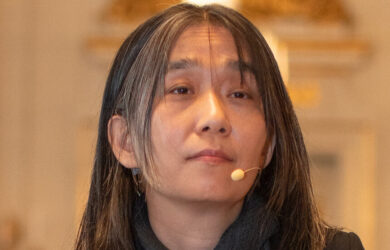
Research by Franz Huber finds people in hi-tech clusters aren't keen on social networking.
Innovation and high-tech “clusters” inspired by the success of Silicon Valley in the United States are, ironically, struggling to get much social networking out of the scientists who inhabit them, a new study by a Gates alumnus suggests.
Research into the “Silicon Fen”, a collection of high-tech businesses around Cambridge named in direct homage to the Californian cluster that spawned sites like Facebook and Twitter, has found that real-life social networking among the people who work there rarely takes place.
The findings are a direct contradiction of much of the reasoning behind creating such knowledge hubs in the first place. Policy-makers and theorists have long argued that wherever firms working in related industries are clustered together, people will start to share ideas across company boundaries as they socialise and meet.
This is supposed to result in a “spillover” effect, turning the area into a vibrant nerve centre that stimulates the local economy as news, gossip, rumours and recommendations about what different businesses are up to spreads. Many countries have sought to create innovation and tech clusters as a result; in the UK, other examples include the M4 corridor, and the so-called “Silicon Glen” in Scotland’s central belt.
While the knowledge spillover theory sounds convincing, however, it has never been properly tested, until now. When University of Cambridge Gates alumnus Franz Huber [2006] decided to do so, he discovered that it doesn’t really work.
Writing in the Journal of Economic Geography, Huber reports that, far from developing the informal social networks that are supposed to stimulate knowledge exchange, most people working in the Cambridge cluster don’t feel that they need to, and don’t have the time.
His study, of 105 people from 46 different hardware and software companies revealed that many of them feel that they work in too closely-specialised a field to benefit from casual ideas-swapping outside the workplace. Often, when they do share knowledge or test ideas, they do it online with other specialists, who are just as likely to live in California as Cambridge.
“Cambridge has one of the most prominent and successful IT clusters in Europe, but many people working there don’t feel that they benefit professionally from being located within it,” Huber said. “The advantage of being there seems to have more to do with the labour market opportunities it offers, and the benefits of having their company associated with the global reputation of Cambridge.”
“We need to rethink the assumption that tech clusters automatically lead to spillovers and knowledge sharing. Most of the people who took part in this research, in particular the engineers, don’t feel that they need to have personal contact outside of their firms to be successful. “
Huber interviewed a mixture of research and development workers, technology officers and managing directors. Using a standardised set of questions, he investigated their day-to-day working habits, the mechanisms by which they form social relationships, their interactions with people from other companies and the perceived advantages and disadvantages of working in the Cambridge cluster.
He found that, particularly below management level, very few participants felt that being there affected their ability to do their jobs. At one stage they were asked: “To what extent is it beneficial for your work in your current firm to have many innovative firms / research institutions located in the Cambridge region?” Participants were asked to respond on a scale of 1 to 7 where 1 meant “very much” and 7 “not at all”. The most popular response was 7, and almost two-thirds of technical engineers put down a 5, 6, or 7.
The most common explanation for this given by the interviewees was that there is no need for interaction in order for them to be able to do their jobs. Many of the companies in the cluster have a global focus, meaning that when they need to recruit or source information, they use the internet to share knowledge with other firms around the world.
Their perceived benefits of working in Cambridge were very different. Most interviewees wanted to work in the area because if they lost their job or decided to move, they felt that there would be a good chance of finding other work nearby, which meant that they wouldn’t have to uproot their family and move. Many also felt that being near to Cambridge and the University was of benefit, because it reflected positively on their firm’s image.
Interestingly, some of the participants had worked in Silicon Valley and referred to its more sociable culture. “There seems to be a different environment there, where people are much more talkative,” Huber said.
His paper concludes that tech clusters can still be of benefit to a regional or national economy – but only if they are created for the right reasons.
“Knowledge Networking just doesn’t drive these sectors as much as we might think,” Huber added. “The idea that putting all these people in one place will enable knowledge to flow sounds good on paper, but it doesn’t take into account people’s individual behaviour. We should be careful about our belief that encouraging networking will drive these industries – nobody is going to use a network, however convenient and local it is, if they don’t feel it’s relevant to their job.”
Huber’s research was covered in the Cambridge News.
Picture credit: Master isolated images and www.freedigitalphotos.net












